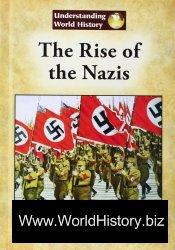In the 1700s the French public still read and enjoyed the thoroughly traditional histories by Francois Eudes de Mezeray, Rene Aubert de Vertot, and Gabriel Daniel, and the English public cherished the works by Sir Richard Baker and John Hughes, the work by the latter in White Kennett’s version. The readers, who undoubtedly marveled at the informal and pleasant way one could by then write about the past, were scarcely aware that over the last three hundred years what had once been a unified and systematic Christian view of the past, present, and future had gradually disintegrated. The impact of the authority-shattering humanist text criticism, the encounters with the many pagan classical works, the radical revision of the image of the world in the geographical discoveries, the shaking of church authority and of faith during the Reformation, the new philosophical and scientific views of the world had done their work. In contemporary histories the Old Testament was doubted as accurate history, direct divine intervention was relegated to rare occasions. Divine Providence was reduced to a vague concept, ecclesiastical history was divorced from secular history, and the milestones of sacred history—Creation, Christ’s life and death, and the expectation of the Last Judgment—were used less and less as markers in world histories by historians who increasingly preferred the theologically neutral scheme of ancient, medieval, and modern periods.
Some historians were about to assume no less of a task than to give meaning to the multitude of mundane events whose significance hitherto had been provided by Divine Providence. The patterns of progress or cycles of life they suggested became key features of the eighteenth century. And in their shadows grew yet another view of historical continuity; one that became a major theme of the nineteenth century: historicism. But even such universal historical themes as progress and the cycle were suggested by these philosophical historians in the context of national states and were modified by it—a fate shared by the discipline that seemed Immune to it, erudite history.
Eighteenth-century England experienced the least need to change historical interpretations; this was the result in large part of the absence of serious social or constitutional problems under the Hanover dynasty. Writers did discuss-mostly approvingly—the importance of the Glorious Revolution of 1688 in English political history. Even David Hume, who as an empirical philosopher brought radical insights to bear on the problem of certainty and truth, used only a generally acceptable version of those views in his historical works. In the characteristic spirit of gradualism, William Robertson and Edward Gibbon combined French influence, erudition, and traditional narrative history into a new, important, and attractive type of history writing—all of it without fundamentally altering the role of history in English society.
Radically new interpretations came from the French philosophes, who felt keenly the discrepancy between their views and those of their society, one ruled by the Bourbon dynasty and deeply influenced by the Roman Catholic church. Against the Old Regime and all it stood for they pitted a whole array of new world-views. Some scholars saw the human universe as a mere mechanical system, repetitive and not much different from nature. The majority, however, spoke of rational individuals operating in a world where natural laws endowed and safeguarded individual rights. History showed no less than the transformation of a potentially rational mankind to an actually rational mankind—in other words, the story of progress. The view acted as a powerful leaven in the existing French society of privilege, caste, and absolutism.
The progress theory made considerable inroads into the German area, but there it would have needed for complete success the radical opposition of the philosophes to the established order. The German social and political situation was relatively sedate, and most historically inclined scholars fitted into it not as literati but as professors at universities. Also, many of the German historians taught history as members of law faculties, where caution and erudition were praised more than radical innovation. The resultant historical thought was characterized by a wealth of new ideas shaped into a less systematic form than the French progress theory. Yet in this amorphous variety can be discerned some common themes, views, and directions. Then, in the late 1700s and early 1800s, these were formed into systematic theories under the impact of the French Revolution and the Napoleonic wars by scholars who pursued the logical consequences of the intellectual innovations of the 1700s. Until that time the spectrum of historical interpretation remained wide. At one end of this spectrum stood a group of historians at the University of Gottingen who, merging German erudition, English empiricism, and Erench rationalism, developed attitudes and methods which were to become most influential in the creation of the nineteenth-century historical science.
On the other end could be found the theologian Johann Gottfried Herder’s more theoretical response to the quest for a new order in history. He came close to creating a theory of history modeled after the patterns of organic life, including the life cycle. It would become as influential an interpretation of the link between past, present, and future as the progress theory. As for the cyclical model, it would stay on, too. After all, it had been espoused before Herder by Giambattista Vico, Jean-Jacques Rousseau (who had formulated a history of human decline), and even by some philosophes.




 World History
World History









